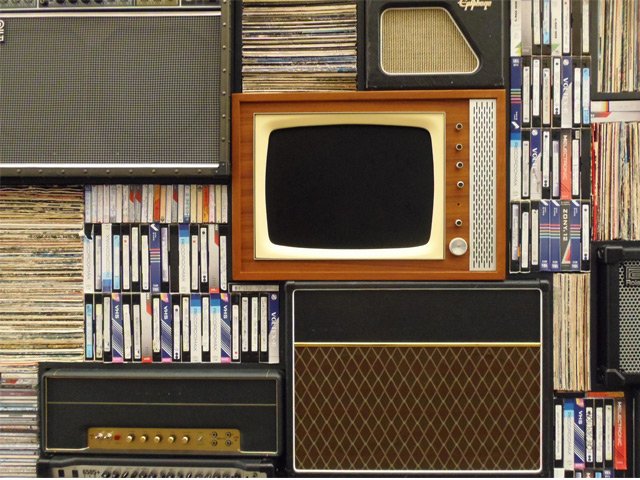How To Cure Your ■■■■ Addiction – For Good
[The Complete Guide Part 1]
This guide is not just about Quitting ■■■■ but a Complete Lifestyle Change. Addiction is something that takes over the whole body; physically, mentally, and socially. To cure an addiction, you don’t just stop doing that thing and go on your way.
It’s so much more than that. I want you to think of this guide as not just curing your ■■■■ addiction but a way of completely changing your life. Do you know someone who is addicted to alcohol? When an alcoholic stops drinking alcohol but maintains the same lifestyle, they are typically miserable in doing so. The slang term that is often used is “dry drunk.” This means they feel and act the same even when sober.
That’s how it is with any addiction. People who are addicted to food, can stop eating food, sure, but again, if they are miserable in doing so then what good is abstaining or not indulging if you’re feeling like crap?
In Part 1 of this guide, you are going to explore all aspects of your life, including your pornography addiction. In addition, we’ll talk about changing your lifestyle, relationships, and your outlook so that you can have greater success.
Let’s plan, take action, and prepare for the future!
Ready to quit ■■■■ for good?
If you’re sick and tired of being addicted to ■■■■ we’ve built the ultimate course to help you. You CAN fight ■■■■ and you can do it from home.
Table of Contents
How ■■■■ Negatively Affects the Brain
Is ■■■■ Ruining Your Sex Life?
Real Physical Touch and Why It’s Important
Emotional Barriers and ■■■■ Addiction
Your Childhood and How it may have Affected your ■■■■ Addiction
When Your Partner is Addicted to ■■■■
When you Both are Addicted to ■■■■
Changing the Way you Think about ■■■■
Thinking of ■■■■ Stars as Real People
■■■■ and Sexually Transmitted Infections
Sex Trafficking, Prostitution, and False Hopes of Being a ■■■■ Star
Welcome
I remember working with a client who had a ■■■■ addiction. At the time he was attending a traditional rehab facility where I worked, that marketed to ■■■■ and sex addicted individuals. He enrolled, spent thousands of dollars, but a week into it he wanted out.
In a group of 15 individuals, there were two who were addicted to ■■■■, one who was addicted to sex, and the others were addicted to drugs and alcohol. Too much of the focus during group therapy was aimed at quitting drugs or alcohol and many of the students did not understand how being addicted to ■■■■ or sex was an addiction because they weren’t putting a substance into their body
■■■■ addiction is complicated.
You or someone you love is struggling with ■■■■ and that’s why you are here. You are not alone.
The use of ■■■■ has dramatically increased over the years and according to various reports, the ■■■■ industry is a staggering…
4.8 Billion Dollars
When you think about how much money that is, it’s absolutely mind blowing.
There are not a lot of options when it comes to treating ■■■■ addiction and if you’re like most people, you probably can’t, won’t, or don’t want to, go to a traditional rehab facility for 90 days. Even if there is a ■■■■ addiction program at the rehab facility, it is likely you would be grouped in with those who are addicted to alcohol or drugs. While all addictions share similar brain changes and concepts the treatment for ■■■■ addiction is much different.
By the end of this guide, you will have all of the tools you need to be able to kick your ■■■■ addiction. I will walk you through each step. It’s time for you to get back to the person you once were.
The person who was happy, healthy, and not addicted to ■■■■.

History of ■■■■
Pornography has been traced back to prehistoric times. Governments in parts of Europe and all of America made obscure images illegal in the mid 1800s. This means it was illegal to publish or sell ■■■■. Like anything that is outlawed, people found a way to traffic images and finally in the 1900s it became illegal to view or possess any pornographic image.
When film started in the late 1800s and early 1900s, producers were excited to be part of a radical movement. It was very risky though because if caught they would be prosecuted and jailed. That didn’t stop them though.
■■■■ in black and white, in the early stages, was nothing more than a strip tease and rarely showed any close ups of the penis or vagina. By the mid 1900s, censorship began to overturn and finally, a major motion picture was released in 1969, in the genre of erotica. Erotic films were hard to come by and almost always had to have a special invite or members only type of scenario.
Finally, in the 1970s, when VHS tapes started to become popular so did “pornos.” You could find “pornos” at adult stores but it’s not as if there was one on every corner. If you’ve ever seen a 70s ■■■■ you will see how vastly different it is compared to what you see today.

VHS porns eventually turned into DVD porns and became easier and easier to obtain. Then came the world wide web. This is where everything changed. Today, you can buy ■■■■ from your TV or watch it on the internet. It takes no effort to obtain and you have access to it 24/7. Most of it is free.
With computer generated images, CGI, a lot of what you see is not even real. With CGI, you can view ■■■■ in video games and it’s been known that there are films out there with fake children and celebrities. Unlike the ■■■■ from the early 1900s, none of what you see today paints a realistic picture of what real sexual intercourse and intimacy looks like.
How ■■■■ Negatively Affects the Brain
There is a chemical in your brain called dopamine. Dopamine is a neurotransmitter which means it sends signals from one cell to another. When a person engages in a behavior that is followed by a reward it activates the dopamine pathway. The purpose of the pathway is to remember the reward motivated behavior. When there is pleasure involved, your brain remembers this and each time you come upon a situation where the dopamine pathway was activated, your brain will release more dopamine before you engage in that behavior.

For example, the first time you view ■■■■, you don’t know beforehand whether or not it feels good. Once you start engaging in the behavior, it feels good so the dopamine pathway is opened up and starts sending pleasure signals from one cell to another. Fast forward to the next time you view ■■■■. Before you even view the ■■■■ you start thinking about viewing the ■■■■. Your brain has remembered this reward motivated behavior so the dopamine pathway has already opened up sending pleasure signals from one cell to another.
Before you know it, certain things will trigger the release of dopamine without you having to even think about it which then forces you to think about it when the dopamine pathway is opened up.
This is called a trigger.
The problem with all of this is that if you start to chronically view ■■■■, your brain is constantly flooded with dopamine and in an order to regulate, the dopamine receptors get smaller. When your brain has too little dopamine it doesn’t feel good and this is where you may start to feel sad, lonely, depressed, or unmotivated. The only way to get out of that feeling is to get more dopamine to the brain so you watch more ■■■■.
If you’re feeling this way, it’s not your fault. Like any addiction, it’s not a matter of self control and you can now see why there is science backing the fact that an addiction is a brain disease. The brain is what is called plasticity which means it can change based upon your environment and the information that you take in.
This is good news because you can literally change your brain by not watching ■■■■!
Extra Resources and Readings
- Video: Here’s how SEO is changing ■■■■ movie titles
- Wiki: The History of ■■■■
- Article: Pornography addiction: A neuroscience perspective
- Video: Your Brain vs. ■■■■
- Video: The Teenage Brain on ■■■■ | Nightline | ABC News
Is ■■■■ Ruining Your Sex Life?

In this section of the guide we will talk about how ■■■■ may be affecting your current relationship and sex life.
We will talk about the importance of real, physical touch and how the intimacy you are watching on a screen does not mimic real life intimate moments.
We’ll also cover emotional barriers and how to break through those walls.
Real Physical Touch and Why It’s Important
Everybody has a different childhood and upbringing and the amount of touch varies from culture to culture but studies have shown a positive connection between touch and emotions. Real, physical touch that is consensual and positive produces emotions such as joy, love and empathy.
Touch is a powerful way to communicate without words.

When you watch ■■■■, take a look at the what you think might be real and true intimacy. After this section, I want you to observe the actors as real people and think of them as someone you know or are close to such as a friend or family member.
Now look at how they are touching each other.
Does that seem real to you? It’s not.
There is no connection between the two, or more, people.
Now you might be thinking, “That’s how it is in the movies right? They are just actors and there is no real connection between the two people since they are just acting.” Yes, that’s true. And, believe it or not, movie watching can be an addiction. However, an addiction to movie watching does not have the same effect on the brain as watching ■■■■.
People don’t get erectile dysfunction disorder and have to hide their actions from watching too many films. Remember when we talked about the affects that ■■■■ has on the brain?
Human touch feels good and to experience the sensual and human part of any relationship, you need to understand the importance of it.
Ready to quit ■■■■ for good?
If you’re sick and tired of being addicted to ■■■■ we’ve built the ultimate course to help you. You CAN fight ■■■■ and you can do it from home.
Emotional Barriers and ■■■■ Addiction
Emotional barriers are unconscious walls that people put between themselves and other people.
The thing about ■■■■ is that it’s easy and convenient to watch because you don’t have to be involved with another person emotionally. This might resonate with some of you who initially struggled with intimacy and relationships but found ■■■■ as a way to escape from having to deal with strong emotional barriers.
After time though, the excitement and the pleasure wears off.
You find yourself feeling guilty or sad even but, because you are addicted, like any drug, you find it hard to stop. And each time you watch ■■■■ you are falling deeper and deeper into the hole and further and further away from the people you care about.

One key aspect to quitting ■■■■ is to find out what emotional barriers you had before you started watching ■■■■ and what emotional barriers you carry with you now.
Once you break through those barriers, it will be easier for you be intimate and your communication skills will be much stronger.
Some common emotional barriers include depression, anxiety, anger, fear, and even pride.
We’ll talk more about mental health later in the guide but for this section I want you to start thinking what kind of emotional barriers may be haunting you. Once you recognize the barriers you can then start to figure out how to break through them. If the barriers are mental health related then making an appointment with a professional would be a good start. If the barriers come from past experiences then perhaps revisiting those situations to make amends with what happened and start living life in the present moment.
You’ve probably seen this quote online as I’ve seen it on a bunch of memes but it’s so true:
YOUR PAST DOES NOT DEFINE YOU
It’s important to observe and pinpoint such barriers because it’s the only way to dig deeper into your consciousness as a way to heal and get rid of the emotional baggage you have been holding on to for all this time.
■■■■ and Relationships
Welcome to the next section titled, ■■■■ and Relationships. We are going to focus on your childhood and how it may be affecting your ■■■■ addiction. Even if you don’t think your childhood had anything to do with your current addiction, I encourage you to read the full section.
Deep reflection is part of the healing process.
If you’re reading this guide because your partner is addicted to ■■■■ then this section is for you too. We will also touch on those who are in a relationship where both of you are addicted to ■■■■.
Your Childhood and How it may have Affected your ■■■■ Addiction

Studies have shown that people who are addicted to ■■■■ may have come from past trauma or neglect.
To be clear, this section is not for everyone and I am in no way saying that you have had past trauma or neglect. However, some of you who are reading this may have and that’s why it’s important to explore this topic whether or not you feel you have been a victim in the past.
■■■■ addiction takes on the chicken or the egg theory.
Some people turn to ■■■■ and become addicted because they are escaping some sort of emotional or physical trauma or perhaps have other mental health struggles going on while other people experience mental health struggles or emotional trauma because they are addicted to ■■■■.
For those of you who are reading this section and have had past trauma, it’s really important to talk about and heal from those experiences if you want to be able to fully understand and cure your addiction for good.
People heal from past trauma in many ways. The most common way is to see a counselor or therapist. Even if you don’t think your past has anything to do with your current situation, I challenge you to think about this a little deeper. And, if you are struggling or have struggled with your past or if you have current mental health struggles today that are related to your past then I urge you to seek professional counseling or therapy in addition to finishing this guide.
When Your Partner is Addicted to ■■■■
When your partner is addicted to ■■■■ it can be just as devastating for you as it is them. ■■■■ addiction should not be treated any different than any other addiction like drugs or alcohol.
If your partner is addicted to ■■■■, the first thing you need to do is lay all the cards out on the table. Communication is important and having a conversation is where everything should start.
The thing you need to know as the partner is whether or not your partner wants to stop watching ■■■■. If they are minimizing it or if they don’t think it’s a problem then it’s important to not engage until they are ready to come to terms with the situation. For example, many people report that if their partner is addicted to ■■■■ they just deal with it because they are afraid that their partner will turn to another person. This generally is not the case. People who are addicted to ■■■■ do not typically go out and seek other people - that would be a sex addiction not ■■■■ addiction.
■■■■ addicts really just want to be left alone so they can get their fix when they feel the need. The other thing not to do is engage in any sexual acts or offer to watch ■■■■ together. This would be enabling them, giving them further ammunition and reassurance that what they are doing is okay and it’s not.
On the other hand, if your partner is acknowledging their problem and wants to change then you can help them by being supportive while they find a recovery plan that works for them. Think of their addiction like an alcohol addiction. When they are ready to stop, they’ll be okay with putting internet blockers on ■■■■ and getting rid of their paraphernalia completely. Like an alcoholic who wants to quit they would pour the alcohol down the drain. While it’s not foolproof of course because they can just go to the store and buy more, it’s a start.
I would recommend that you encourage your partner to find a program because trying to quit ■■■■ without guidance is really, really hard. Remember, it’s important to take care of yourself through this so you can be better at helping your partner when they are ready.
Self care is not selfish, it’s a necessity.
When you Both are Addicted to ■■■■
Many people don’t struggle alone with ■■■■ addiction and oftentimes, couples become addicted together.
When couples are addicted to ■■■■ it looks a bit different than when a person is addicted by themselves. Typically, the relationship will start as normal and time goes by. One of the partners will suggest watching a ■■■■ to get into the mood and then it becomes something that they will watch together, a lot, and will find themselves rarely being able to achieve orgasm without watching.
If you struggle with an addiction, and so does your partner, it’s really important to both be on the same page about quitting ■■■■. You’ll need to do this together or it won’t work. It would be ideal for both of you to read this book simultaneously so that you can be very empathetic and understanding of what you both may be going through. Later in the guide we talk about having a reset, which means no ■■■■, no masturbation, and only real sex. This can only be achieved if both of you do it together.
Extra Resources and Readings
- Article: Relationship between interpersonal trauma exposure and addictive behaviors: a systematic review
- Article: The Hidden Wisdom of ■■■■ Addiction
- Article: Is pornography addictive?
Changing the Way you Think about ■■■■
In this section, Changing the Way you Think about ■■■■, you will be challenged to think differently.
This section is really important and a key component of the entire guide. By the end of this section, pornography will never be the same for you.
You are going to think critically about ■■■■ stars and how they are real people and you’ll hear stories and understand the different perspectives coming from both the male and female side, sexually transmitted infections that run rampant amongst the industry, sex trafficking, and prostitution. It’s important that you know what’s really going on behind that camera.
Up until now, you’ve likely been able to put a mental barrier between you and the other side but after this section that mental barrier is going to come down, little by little.
Thinking of ■■■■ Stars as Real People
■■■■ stars are real people and once you start to bring some empathy to the situation you may be able to create some space around the the thoughts you have while watching ■■■■.
The first thing I want you to do is think of your favorite ■■■■ star, male or female, and create an image of them in your head. Now, think of them as they were as a baby, wrapped up in a blanket, in their mother’s arms. When that mother looked into her brand new baby’s eyes, she did not for one moment think they would grow up doing ■■■■.
Now think of what their childhood was like, good or bad, but just think of them as children.
If you are picturing them as good children with a loving family, think about their innocence and carefree playfulness. If your immediate thought was that they had a bad childhood and that’s why they turned to ■■■■ then think about that too. How terrible and awful it must have been for them to grow up like that.
When you think of the best childhoods and the worst childhoods, the truth is, that you’ll find that ■■■■ stars come from all walks of life, some good and some not so good, but, it’s important to visualize what things may have been like for them. At some point though they made a decision to have sex with other people on television for a paycheck. Those same people have mothers, fathers, sisters, brothers, nieces, nephews, grandparents and some even had children of their own.
For now, when you view ■■■■, just create that space around your thoughts. It’s a powerful and important exercise as this is not something most people do or have ever done while viewing ■■■■. By the end of this guide you are going to be able to have a completely different view and way of thinking about all of this and this is the path of getting there.
From the Male Perspective
Male ■■■■ actors are speaking out about the pressures of the adult entertainment industry. We talked about the history of ■■■■ already but that doesn’t mean that things are not constantly changing still. The evolution of the ■■■■ industry, like many other industries, is a constant upping the game concept. Two people having sex isn’t enough anymore.
Forbes did an interview with a retired ■■■■ star: Christopher Zieschegg.
Like many male performers, I had become reliant on erectile dysfunction drugs as performance enhancers. In professional sports, men take steroids. In ■■■■, we take Viagra, Cialis, Levitra, injections. It’s very common.
Christopher Zieschegg
Former ■■■■ Star
Christopher stated that he became reliant on erectile dysfunction drugs as did many performers and developed a condition called priapism which is something that happens when the penis stays erected for long periods of time. It is a very painful and dangerous condition.
Most male ■■■■ stars use the drugs both orally and as an injection right to the penis so when you watch ■■■■, just know that their penises and extremely hard erections are not that big and never were.
Male ■■■■ stars cannot make a career out of being an actor because after just a few short years, the work becomes both physically and mentally draining. Let alone, the impact it has on their own personal relationships.
The videos and articles are important to read and watch. It’s really impactful to have the ability to think of these males as human beings and how their short careers affect their entire lives.
From the female perspective
Being a female ■■■■ star is a rough gig. While making it big is the ultimate goal, most do not and even those who do get paid a lot, the money doesn’t justify their emotional and physical struggles they encounter.
Female ■■■■ stars are actresses and just that. They are not enjoying their work. They do not love giving blow jobs and having rough objects put into their bodies. Most of them have to practice how not to gag when giving oral sex. They don’t like having rough sex with many people or having multiple penises in them at once.
Some women report vomiting, vaginal and anal tearing and just breaking down at the end of a shoot completely emotionally and physically exhausted. Watch the following video for revealing, real-life testimony from ex-female ■■■■ stars:
■■■■ and Sexually Transmitted Infections
Every state and country has their own laws, and some don’t have any laws, regarding the testing of sexually transmitted infections, STIs, in the ■■■■ industry. That does not stop the spread of the infections.
Considering how many genres of ■■■■ are out there on the internet, it should be known that some of the industry may have strict testing policies while others, more amature or underground agencies may not have a policy at all. Typically speaking most well known agencies will have, due to a law or just because, their actors and actresses tested once per month for HIV and STIs. Does that stop the spread of gonorrhea, chlamydia, syphilis and other STIs?
Hell no it doesn’t and there are many reasons for this.
- Not every ■■■■ star keeps it within the ■■■■ industry. This means that nobody is stopping them from having sex with other people so there is always the risk of them bringing an infection from the outside into the industry.
- Once per month is not enough. Once per week is not enough. Every day isn’t even enough! Once you contract an STI or HIV you do not get symptoms right away, and because it can take a week or so to get the test results someone could have contracted a disease and spread it to five other people. The cycle continues.
- Drug use is common in the ■■■■ industry.Those who use needles may be contracting HIV from places other than sex.

Think about this the next time you watch ■■■■. Remember, this guide is here to retrain your brain and this section particularly is here for you to have a different perception about the ■■■■ industry. There’s a term for this and it’s called negative associations.
When you connect ■■■■ to negative feelings, you will start the rewiring of your brain.
Sex Trafficking, Prostitution, and False Hopes of Being a ■■■■ Star
There is no shortage of female actresses in the ■■■■ industry. I was a social worker for the state of Washington and during that time I worked closely with young women who were being sexually trafficked and prostituted. I learned a lot just from talking to them.
Most of the girls I worked with were in foster care or grew up in very broken or abusive households. Many were homeless. Their stories were all very similar.
An adult male sets out to find vulnerable, young females. This male will start to groom them as early as age 12. They promise to take care of them, take them shopping, buy them expensive things, give them love and shelter in exchange for performing small sexual acts when asked to do so. We know these males as “pimps.”
Nobody is looking for these girls as they don’t typically have family that care about them or they are homeless or have ran away from foster care. The grooming process is the job of the pimp in order to control their girls’ every move. As the girls get older, they start asking more questions and much of the time it’s a promise of being a famous ■■■■ star when they turn 18. The pimps like to tell their girls that this is practice and they often promise them real acting roles in the near future.
When 18 comes around, their hopes are rarely achieved and the girls become harder to control. Some pimps let them go while others resort to physical and sexual violence to keep them in check. And just to be clear, while the majority of the children are girls, there are boys that are groomed and trafficked as well. It just may look a little different.
You see, the kids that want to get into to ■■■■, generally speaking, and of course this does not speak for all ■■■■ actresses, but again generally and anecdotally, the kids who dream of being a ■■■■ star come from very dark and twisted pasts. They see money and fame because they feel worthless and have not been given the skills they need to obtain any other career, These kids rarely become famous because like much of the entertainment industry the big famous roles go to those who are confident, know people, and come from large social circles, not those who lack confidence and have pimps doing their work for them.
And I think that’s the saddest part - these kids end up with nothing in the end.
